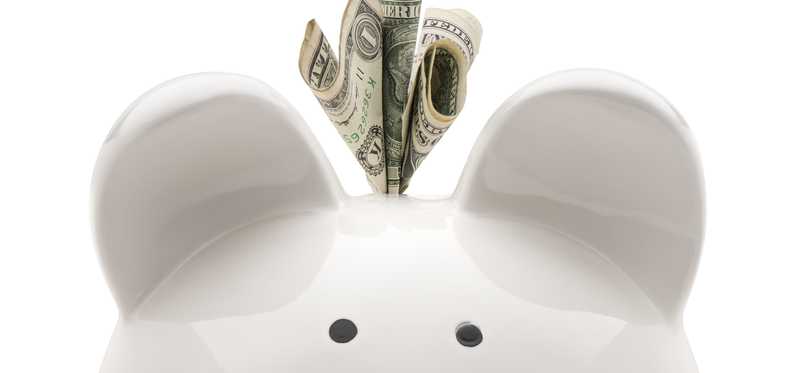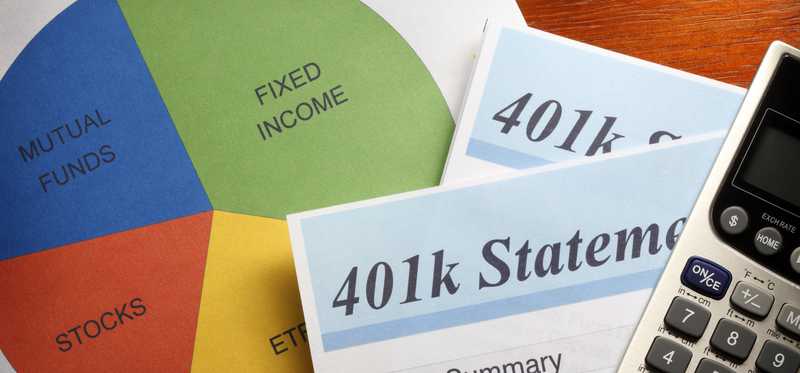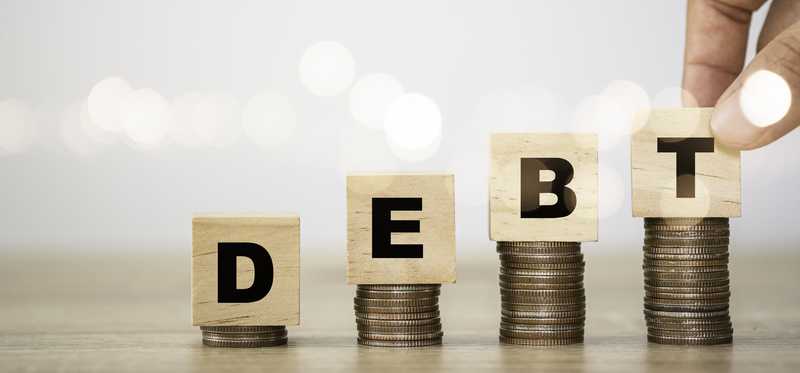15 Numbers You Need to Know Before Retiring

15 Numbers You Need to Know Before Retiring
Don't consider retirement without knowing these figures first
Your choice about when to retire is one of the most impactful decisions you'll make over your lifetime.
You need to make sure you're really ready, as going back to work could be difficult after giving notice. And you definitely don't want to find yourself struggling late in life when you have few options for earning extra income.
So how can you tell if you're prepared for a secure future in your later years once you're no longer getting a paycheck? Here are 15 numbers that you need to know that will help you assess your retirement readiness.
5 Stocks Under $49
Presented by Motley Fool Stock Advisor
We hear it over and over from investors, "I wish I had bought Amazon or Netflix when they were first recommended by The Motley Fool. I’d be sitting on a gold mine!" It's true, but we think these 5 other stocks are screaming buys. And you can buy them now for less than $49 a share! Click here to learn how you can grab a copy of "5 Growth Stocks Under $49" for FREE for a limited time only.
Previous
Next

1. Your withdrawal rate
It's critical that you have retirement income from an investment account if you want financial security as a senior. You'll need to make sure you have money coming in for the entirety of your life.
Unfortunately, if you take too much out of your accounts, you could end up draining them and not having the funds you need late in retirement. To avoid this, you'll have to decide on a withdrawal rate.
One common rule says you can take 4% out your first year and then adjust withdrawals annually to account for inflation. You could adopt this rule, but should research all your options and decide on your own number before you retire.
Previous
Next

2. The amount of money in your retirement accounts
You'll also want to know your retirement account balance before leaving the workforce.
Figuring this out can be more complicated than it seems if you have multiple accounts, including several 401(k)s with old employers, as well as IRAs.
Add up your balance from all of your different accounts so you can make a realistic assessment of just how large your total retirement nest egg is. You'll need to know this number to confirm your balance is big enough.
Previous
Next

3. The income your investments will produce
Once you know your total retirement account balance and how much you can withdraw from your accounts, you can get a realistic idea of how much income your investments will produce for you.
If you have a million dollars saved, for example, and you opt to follow the 4% rule, you'll know that your investments will give you $40,000 in annual income.
ALSO READ: Here's an Absolutely Brilliant Way to Earn Passive Income
Previous
Next

4. The rate of return on your investments
Understanding the projected rate of return on your investments can also help you determine if your money will last.
If you anticipate earning 4% on your money throughout retirement, for example, you may need to be much more conservative in how much you take out of your accounts than if you expect to earn 8%.
Knowing your projected return on investment (ROI) isn't just helpful in assessing your likely income or calculating how long your savings will last. If your projected returns are very low, knowing this number could potentially help you identify changes you can make to your investments to get a better ROI.
Previous
Next

5. Your full retirement age for Social Security
Social Security is another important income source for seniors. But you have a choice of when to claim benefits and the decision you make will affect the income you get.
You should know when your full retirement age (FRA) is, because you can't claim benefits before then without being hit with early filing penalties that reduce your monthly payment.
FRA is based on birth year, and it's between 66 and four months and 67. Be sure you know your number before retiring so you can make an informed decision about when to claim Social Security.
5 Stocks Under $49
Presented by Motley Fool Stock Advisor
We hear it over and over from investors, "I wish I had bought Amazon or Netflix when they were first recommended by The Motley Fool. I’d be sitting on a gold mine!" It's true, but we think these 5 other stocks are screaming buys. And you can buy them now for less than $49 a share! Click here to learn how you can grab a copy of "5 Growth Stocks Under $49" for FREE for a limited time only.
Previous
Next

6. The amount of income Social Security benefits will offer
The amount of Social Security income you get is based both on age when you claim benefits and earnings throughout your career.
Many people have an unrealistic idea of what Social Security will do for them. If you anticipate your benefits will provide more income than they do, you could be in financial trouble. So be sure you know exactly how much money you'll get each month.
You can sign into your Social Security account online to find out your projected income, and you should do this before quitting work.
ALSO READ: 3 Surprising Ways You Could Lose Some of Your Social Security Benefits
Previous
Next

7. The amount of spousal or survivors benefits that could be available
Social Security retirement benefits aren't the only source of income that you could get from the Social Security Administration in your later years.
Spousal benefits and survivors benefits may also be available. These can sometimes provide much more money than your own benefit if you didn't earn much in your job or didn't qualify for benefits at all because your work history is too short.
You should know how much income, if any, each of these types of benefits could provide to you as this could affect your retirement readiness.
Previous
Next

8. The amount you'll need to cover living expenses
Understanding how much income you'll actually need is also crucial before retiring. Many experts suggest that seniors need to replace around 80% of pre-retirement income, but a substantial number of current retirees spend much more than that.
By calculating the amount of money you'll need, you can make sure that the funds you get from Social Security and investments will be enough to cover you.
Previous
Next

9. The typical healthcare expenses a senior incurs
Seniors often forget to consider healthcare costs in setting their projected budgets. Or they assume Medicare will cover everything and they won't incur much cost for medical services.
This can be a huge mistake, as the amount of money seniors may need for healthcare is astronomical.
Recent estimates suggest out-of-pocket spending for a senior couple could top $300,000 over the course of retirement. You need to know this shocking number so you can make certain you're prepared to cover the care you end up needing.
Previous
Next

10. The percentage of seniors who need long-term care
The chances you'll need nursing home care or home care are far higher than you might expect. As many as 70% of seniors 65 and over end up requiring some type of custodial care in their lifetime.
If you don't know the stats on long-term care, you may not take the necessary steps to prepare for this expense should you become one of the majority who needs nursing services.
5 Stocks Under $49
Presented by Motley Fool Stock Advisor
We hear it over and over from investors, "I wish I had bought Amazon or Netflix when they were first recommended by The Motley Fool. I’d be sitting on a gold mine!" It's true, but we think these 5 other stocks are screaming buys. And you can buy them now for less than $49 a share! Click here to learn how you can grab a copy of "5 Growth Stocks Under $49" for FREE for a limited time only.
Previous
Next

11. The cost of long-term care
Many seniors underestimate both their chances of requiring long-term care and the actual cost of nursing home or home care services.
The reality is, a private room in a nursing home comes at an average cost of $108,405, according to the Genworth Cost of Care Survey released in 2022. You should know this number before retiring so you can make certain you've taken steps to cover this huge expense.
This could include buying long-term care insurance or making a Medicaid plan.
ALSO READ: The Shocking Cost of Long-Term Care -- and How to Tackle It
Previous
Next

12. Your life expectancy
Until the COVID-19 pandemic changed the trend in recent years, life expectancies had been getting longer. Although that's good news, it does mean that you need to support yourself for more years without a paycheck.
You should know what your projected life expectancy is for two reasons. First, this can help you to decide if you'd end up better off if you delayed claiming Social Security benefits or if you claimed them early. Second, knowing this number will help you calculate whether your savings will last for the rest of your life.
Previous
Next

13. The inflation outlook
Inflation can be really bad news for seniors.
When prices rise, the value of your savings erodes because the money you have invested doesn't buy as much. Social Security benefits also aren't doing a good job of keeping pace with inflation, even though cost-of-living adjustments are built into the program.
Inflation is currently surging, and this trend is expected to continue for at least the short term. Before retiring, you should know what the future inflation projections are so you can make better, more informed choices about the amount of buying power you'll actually have.
Previous
Next

14. Your total amount of outstanding debt
Before retiring, it's also a good idea to add up all the money you owe. That's because going into retirement with a lot of debt can make it harder for you to live on a fixed income.
You should know how much you owe, what it will take to become debt free, and when you'll hit that milestone. Doing the math on your total debt owed could help you to decide if you should work a little longer to try to pay off your balance before leaving the workforce.
Previous
Next

15. The amount of money in your emergency fund
Finally, you should know your emergency account balance. Emergencies don't stop because you're retired, and they can be hard to cover without raiding retirement accounts if you don't have an emergency fund.
Unless you have the cash to cover three to six months of living expenses, you may want to put off retiring and save up the rainy day fund you need to give you peace of mind.
5 Stocks Under $49
Presented by Motley Fool Stock Advisor
We hear it over and over from investors, "I wish I had bought Amazon or Netflix when they were first recommended by The Motley Fool. I’d be sitting on a gold mine!" It's true, but we think these 5 other stocks are screaming buys. And you can buy them now for less than $49 a share! Click here to learn how you can grab a copy of "5 Growth Stocks Under $49" for FREE for a limited time only.
Previous
Next

Knowing these numbers can help you ensure a secure retirement
Knowing these 15 crucial numbers can help you to assess whether you're in a financial position to leave work or not.
You'll hopefully find you have plenty of money to live a comfortable life -- but if that's not the case, it's definitely better to discover that sooner rather than later.
Christy Bieber has no position in any of the stocks mentioned. The Motley Fool has no position in any of the stocks mentioned. The Motley Fool has a disclosure policy.
Previous
Next
Invest Smarter with The Motley Fool
Join Over Half a Million Premium Members Receiving…
- New Stock Picks Each Month
- Detailed Analysis of Companies
- Model Portfolios
- Live Streaming During Market Hours
- And Much More
READ MORE
HOW THE MOTLEY FOOL CAN HELP YOU
-
Premium Investing Guidance
Market beating stocks from our award-winning service
-
The Daily Upside Newsletter
Investment news and high-quality insights delivered straight to your inbox
-
Get Started Investing
You can do it. Successful investing in just a few steps
-
Win at Retirement
Secrets and strategies for the post-work life you want.
-
Find a Broker
Find the right brokerage account for you.
-
Listen to our Podcasts
Hear our experts take on stocks, the market, and how to invest.
Premium Investing Services
Invest better with The Motley Fool. Get stock recommendations, portfolio guidance, and more from The Motley Fool's premium services.